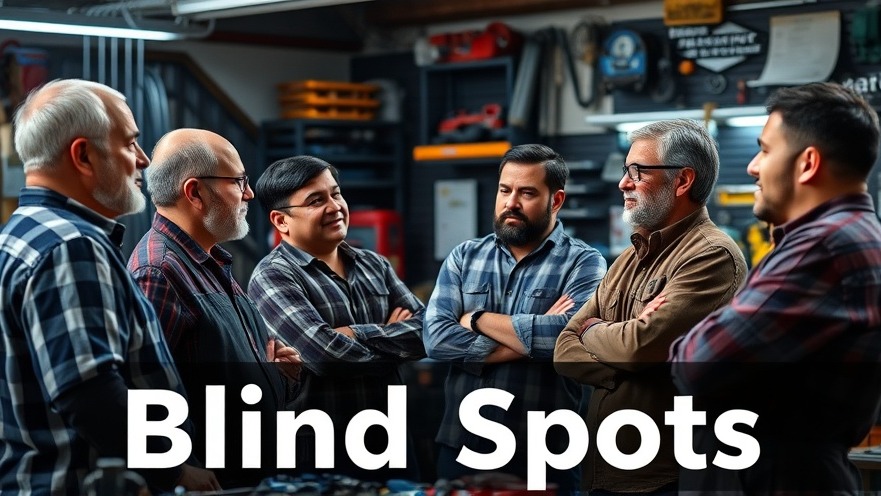
Uncovering Leadership Blind Spots
As auto repair shop owners, Chris Cloutier and Bruce Howes learned firsthand that even the most experienced leaders often grapple with what they cannot see. Blind spots in leadership can hinder growth, but recognizing and addressing these gaps can be transformative. In an industry that demands both technical expertise and interpersonal skills, embracing humility and a willingness to learn becomes essential.
The Power of Feedback
One effective strategy for overcoming these blind spots is fostering a culture of openness. Feedback from staff and peers can provide valuable insights, offering perspectives that leaders might overlook. Both Cloutier and Howes emphasize the importance of seeking out this feedback regularly, which not only helps in identifying issues but also builds trust within the team. When team members feel comfortable providing honest input, it cultivates an environment ripe for improvement and innovation.
Cultivating a People-First Environment
Investing in team development can dramatically enhance a shop's operational efficiency. Howes specifically points to the need for retention strategies that resonate with today’s technicians, many of whom prioritize work-life balance and professional growth. By adopting a people-first approach, businesses can adapt to generational shifts in the workforce, ensuring that they attract and retain motivated employees. This not only strengthens the team dynamics but translates to better customer service and satisfaction.
Incremental Changes for Sustainable Growth
The journey towards improvement need not be overwhelming. Cloutier highlights the effectiveness of making small, incremental changes rather than sweeping reforms. These changes, when clearly communicated with transparency around their purpose, can lead to profound operational excellence over time. Continuous improvement should be a part of the shop's culture, where every team member understands their role in contributing to the overall success.
Stoicism and Leadership
Integrating philosophical principles like Stoicism can also be a beneficial strategy for shop owners. By embracing a sense of curiosity and commitment to growth, leaders can navigate the challenges of their roles more effectively. Stoicism teaches us to focus on what we can control and accept what we cannot—a vital perspective in the ever-evolving landscape of the auto repair industry.
Future Predictions: Adapting to Change
Looking ahead, the auto repair industry must continue adapting to rapid changes, whether technological advancements or shifting consumer expectations. Leaders who remain agile and open to change will be best positioned to thrive. Howes and Cloutier's experiences serve as reminders that growth often requires examining our own perspectives and inviting others to guide us. Exploring these leadership blind spots can unlock potential not only for individual owners but for their entire teams.
Conclusion: Are You Ready to Reflect?
The road to effective leadership in the auto repair industry is paved with self-reflection and a willingness to embrace feedback. As you consider your own leadership style, think about the blind spots that might exist in your approach. By actively seeking growth opportunities and fostering a supportive team environment, you can steer your shop toward greater success. Are you ready to take the next step? Reflect on your leadership journey and seek out those feedback moments that could lead to your next breakthrough.
 Add Row
Add Row  Add
Add 




Write A Comment